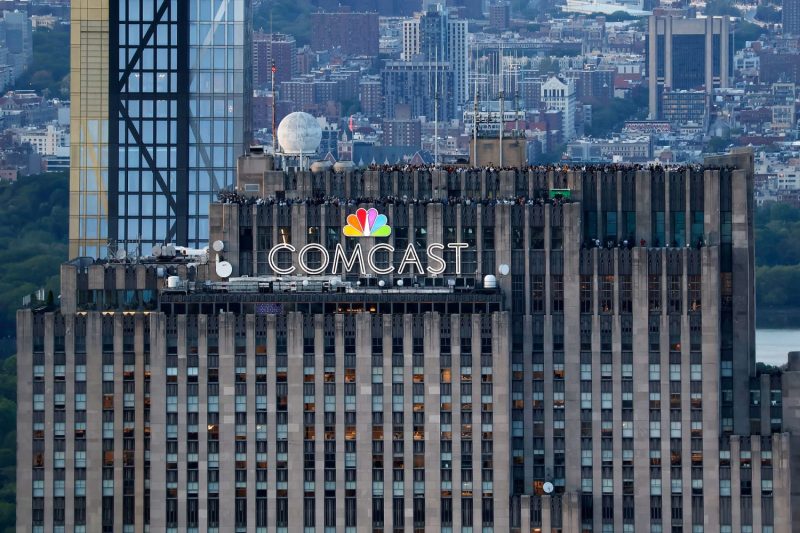With a significant change in its horizon, Comcast Corporation, the American telecommunications conglomerate, recently declared its plan to separate from its cable channels, such as MSNBC, CNBC, and USA Network. This strategy underlines the company’s ongoing transition towards a streaming-centric approach and signifies further disruption in the traditional cable industry.
The move to spin off well-established cable channels is a daring one for Comcast, bearing high risk due to possible losses in advertisement revenues. However, the decision would allow the company to reallocate its resources and focus its energies on its rapidly growing streaming services. The corporation sees this strategy as more sustainable considering the rise in cord-cutting among consumers, opting to consume media via digital streaming services.
MSNBC, CNBC, and USA Network, known for their niche contents from news to entertainment, are among the established cable brands that Comcast intends to detach. These channels have garnered loyal viewerships over the years, promising a profound impact on the viewers and the industry alike.
MSNBC is an established name in the news sector, not just domestically but also worldwide. It has been a critical platform for political discussions, pulling in regular viewers who rely on its in-depth and comprehensive news coverage. Similarly, CNBC has been a go-to for financial news, serving insights and updates on the American and global economies. Meanwhile, USA Network has a diverse range of popular programs that drew in dedicated audiences and made it one of the former highest-rated cable channels.
The proposed spin-off has sparked curiosity about these channels’ fate. Industry experts predict various possible scenarios – from these channels expanding their own digital streaming services to entering mergers with already established OTT platforms. In any case, the shift is anticipated to intensify the existing competition among digital platforms.
Cord-cutting is undeniably influencing major shifts in the media industry, pushing providers like Comcast to explore new pathways. The transition from traditional platforms to digital spaces presents challenges, but it also paves the way for innovation in service delivery and content production.
The spin-off news also implies a significant cultural shift for Comcast. From being a cable provider solely, Comcast is gradually transforming into a multipurpose digital platform company, showing its readiness to adapt to evolving consumer behavior and market dynamics.
Despite these major changes, what remains constant is the commitment to deliver top-notch content and the promise to cater to evolving viewer preferences and expectations.
Looking forward, there are substantial questions about what this decision means for viewers, advertisers, and the industry as a whole. While some fear that the spin-off could lead to potential job losses or changes in programming, others see opportunities for new growth and innovation.
Regardless of the outcome, the spin-off is a clear demonstration of Comcast’s willingness to make bold decisions to keep up with the rapidly changing landscape of the entertainment industry. It underscores the recognition of the overwhelming importance of adapting to a new era where streaming services are the norm rather than an exception.
Overall, with this strategic move, Comcast is stepping into uncharted territories, pushing the boundaries of traditional cable services. It’s more than just a corporate manoeuvre; it’s a testament to the changing entertainment consumption habits and a powerful move towards embracing the future of television.
